
New podcast episode
#29 Café Evropa - Agriculture in the 21st Century: How Are Farmers Doing Today?
What are we planning at EUROPEUM Institute? See where you can meet our experts and don't forget to add our events to your calendar!
EuroLens Journal #1: Europe’s Security at Stake
And it's out! EUROPEUM’s journal EuroLens, which will be published biannualy from now on, is our new magazine full of interviews with experts, commentaries, and articles on both political and non-political topics. You will also find an overview of planned events, conferences, and of course much more. We hope it will be an interesting and inspiring source of information and helpful in your work!

New podcast episode
#28 Café Evropa - The future of Tech giants in the European Union
How is the European Union trying to balance the relationship between innovation and user protection in an era of Big Tech dominance? In a new episode of Café Evropa, Daniel Braun, former Chief of Staff to former European Commission Vice-President for Values and Transparency Věra Jourová, will try to explain. What challenges does the EU face in the context of digital services? And what values does the European Commission believe the internet should uphold?
About the EUROPEUM Institute
EUROPEUM is an independent think-tank focused on the European integration process. We conduct original research and organise public activities. We also formulate new ideas and recommendations to improve domestic and European policy.
Events
We organize regular seminars, debates, conferences, workshops and round tables focused on current European topics.
More info
Projects
Our long-term projects help to raise awareness of the European Union and strengthen international cooperation.
More info
Articles
Our research team publishes articles responding to topics related to European integration and more.
More info
Events
We organize regular seminars, debates, conferences, workshops and round tables focused on current European topics.
More information
Projects
Our long-term projects help to raise awareness of the European Union and strengthen international cooperation.
More information
Articles
Our research team publishes articles responding to topics related to European integration and more.
More information
Upcoming events
Past events
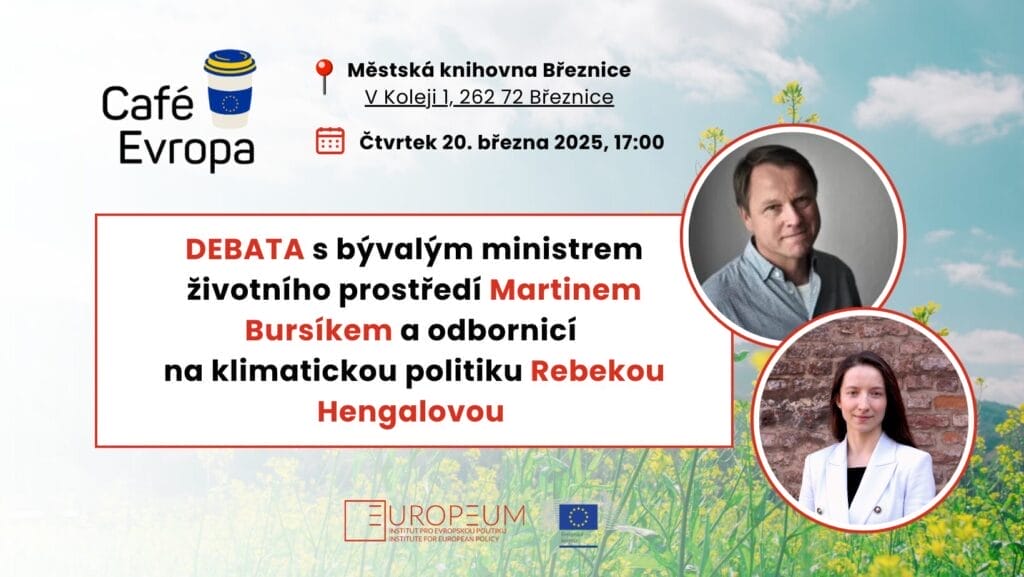
20. March 2025
DATE AND PLACE: Thursday, March 20, 5:00 pm, Březnice Municipal Library (V Koleji 1, Březnice) GUESTS: Moderator: Veronika Rajmanová The discussion will be an opportunity for an interesting debate. We look forward to hearing your views! The event is organised in cooperation with the Representation of the European Commission in the Czech Republic. For more […]
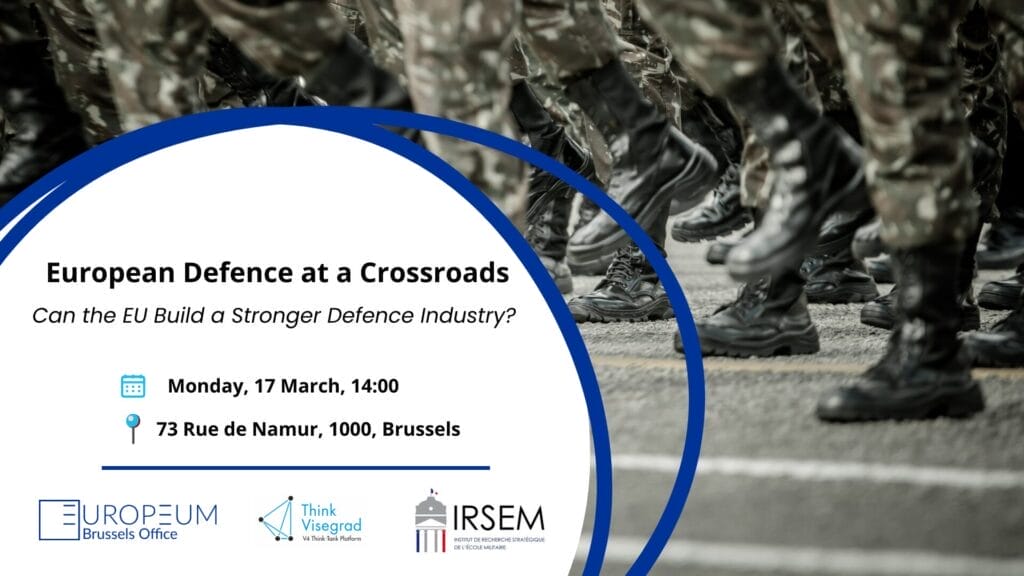
17. March 2025
European Defence at a Crossroads – Can the EU Build a Stronger Defence Industry?
The Brussels Office of EUROPEUM, representing the Think Visegrad Platform, in collaboration with IRSEM EUROPE – The Institute for Strategic Research at the Military School, invites you to an expert discussion on the future of the European defence industry.
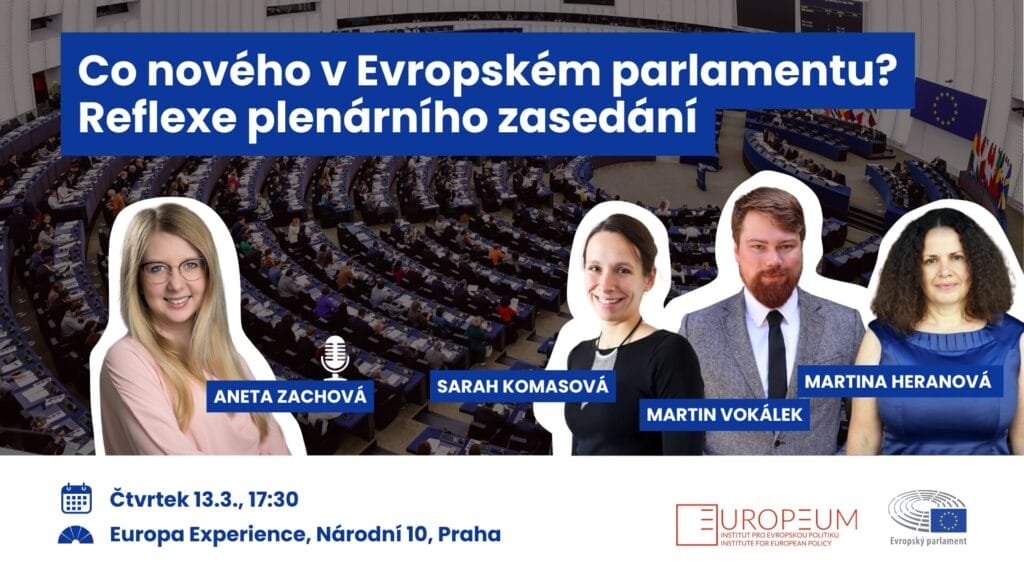
13. March 2025
What's new in the European Parliament? Reflection on the plenary session
We would like to invite you to the first in a series of debates that provide an up-to-date perspective on key topics discussed in the plenary sessions of the European Parliament. The aim of the debates is to offer a clear overview of the decisions taken and their wider impact on the European Union and the Czech Republic. Each debate will provide a space for reflection on major legislative and political steps taken by the European Parliament, direct discussion with MEPs and experts, and an open dialogue with the professional and general public.

7. March 2025
Ji.hlava | Screening of the film Comrades
EUROPEUM Institute for European Policy, in collaboration with the Ji.hlava International Documentary Film Festival, cordially invites you to an exclusive screening of the documentary film Comrades.
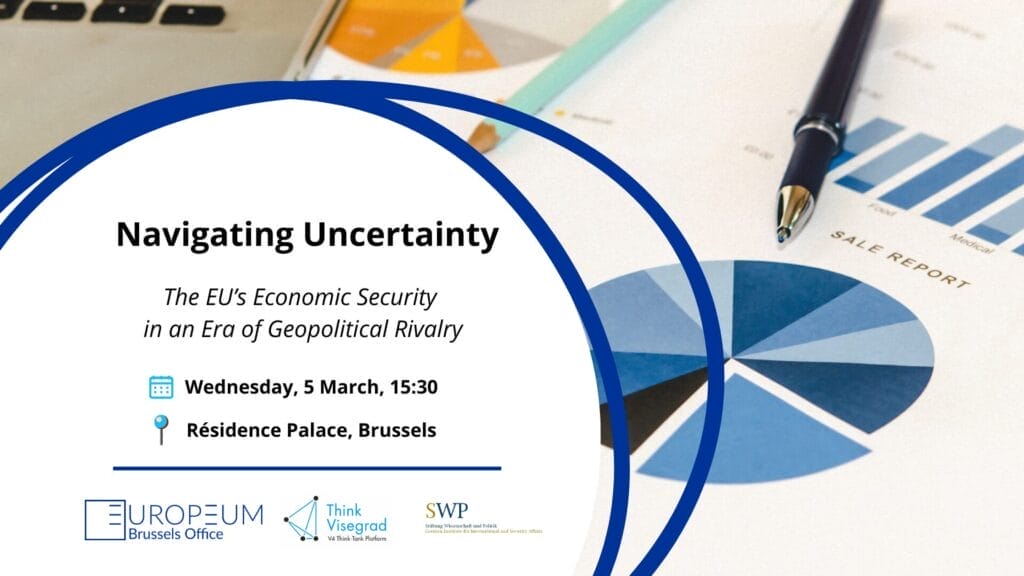
5. March 2025
Roundtable: Navigating Uncertainty – The EU’s Economic Security in an Era of Geopolitical Rivalry
The Brussels Office of EUROPEUM, representing the Think Visegrad Platform, in collaboration with SWP Brussels – Stiftung Wissenschaft und Politik, invites you to an expert discussion on the future of the EU’s economic security in an increasingly volatile global environment.
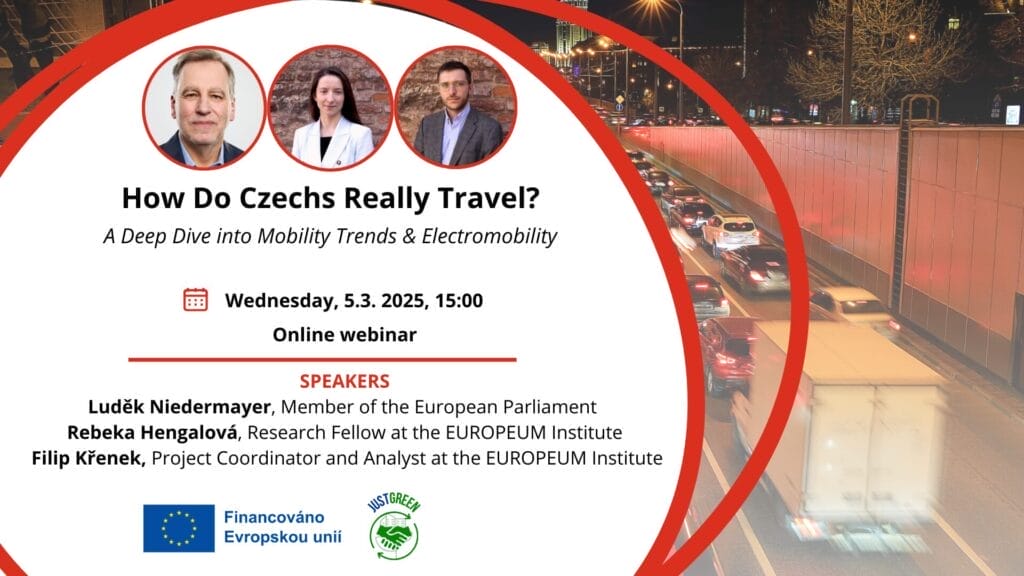
5. March 2025
Online webinar: How Do Czechs Really Travel?
What truly matters when choosing how we get around? How do Czechs prefer to travel, and what’s stopping them from switching to electric cars? Join us for a live talk-show-style webinar where we’ll present fresh data on Czech mobility habits. We’ll explore:
In the Media
Projects
Publications
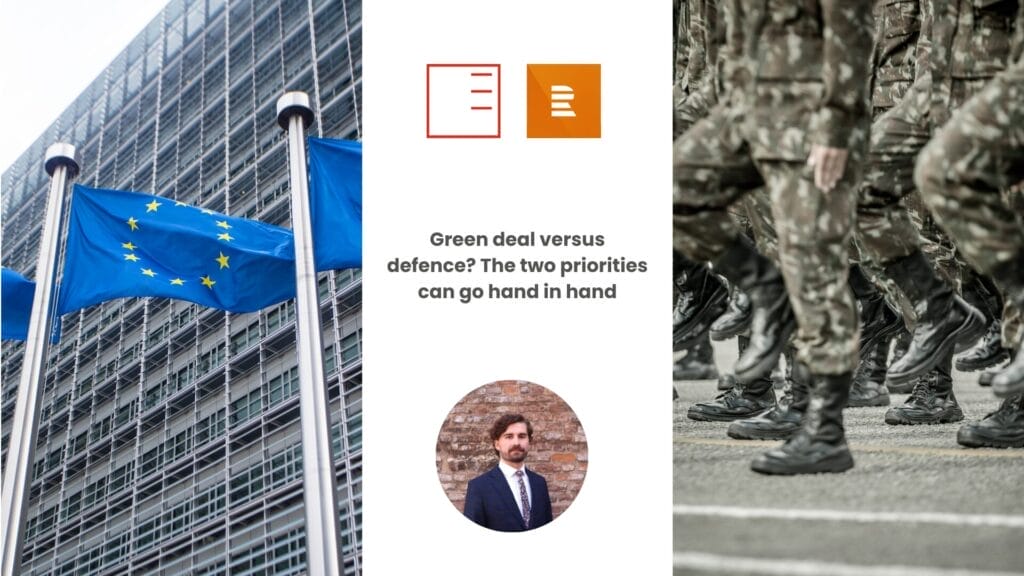
25. March 2025
ČRo Plus | Green deal versus defence? The two priorities can go hand in hand
At a time of a deteriorating security situation, voices calling for a reassessment of budgetary priorities are increasingly being heard. Should we invest more in defence instead of decarbonisation? Is it even possible to fund the Green Deal while maintaining effective defence capabilities? Viktor Daněk, Deputy Director of EUROPEUM Institute, commented for Czech Radio Plus.

22. March 2025
CNN Prima News | European Council conclusions on Ukraine are not binding, warns analyst
As expected, the 26 EU leaders found a consensus on Ukraine. While the text did not bring any new commitments, it showed a "new standard" of strong statements without the consent of one hundred percent of the European Council members. EUROPEUM Institute analyst Zuzana Krulichová comments on the situation.
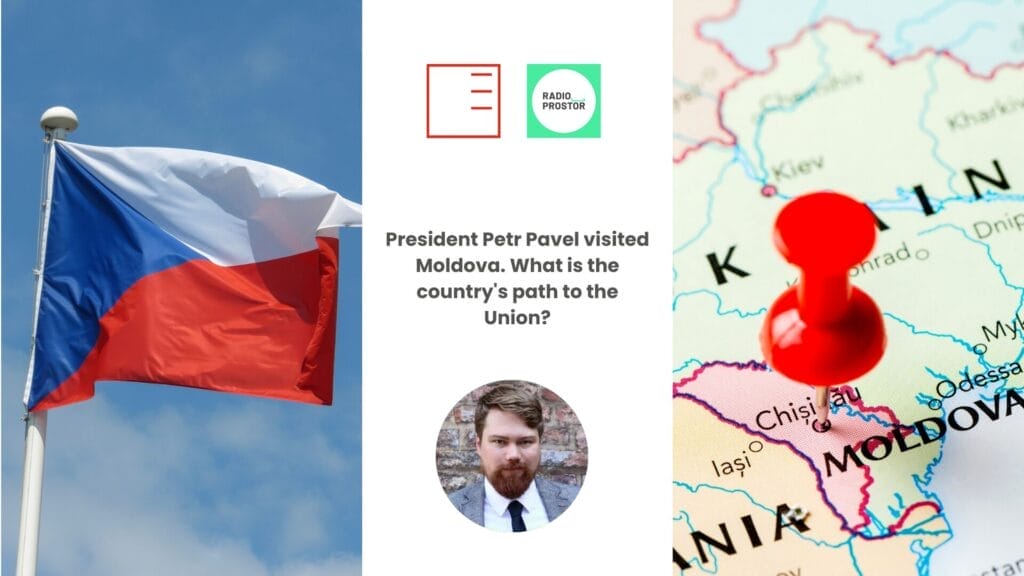
21. March 2025
Radio Prostor | President Petr Pavel visited Moldova. What is the country's path to the Union?
President Petr Pavel travelled to Moldova this week. During his state visit, he wants to address bilateral relations between the two countries as well as the current security situation in Europe and the world. Martin Vokálek, Director of the EUROPEUM Institute, commented on the relations between the Czech Republic and Moldova.
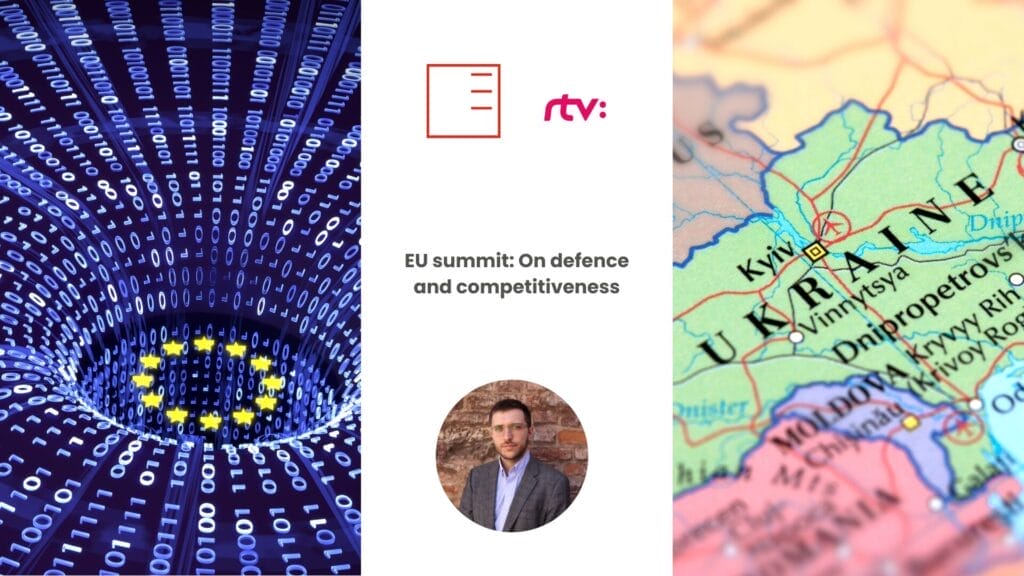
20. March 2025
STVR | EU summit: On defence and competitiveness
In Brussels, representatives of the Member States discussed a myriad of issues. One of them is the continuation of further military aid to Ukraine. Twenty-six Member States supported the joint declaration on the continuation of aid, while Hungary opposed it. What weight does this declaration carry if it is not unanimous? Filip Křenek, an analyst at EUROPEUM Institute, commented for STVR.

20. March 2025
TN.cz | EU leaders' summit
Viktor Daněk, deputy director of the EUROPEUM Institute, commented for TN Live on the summit in Brussels, which focuses on competitiveness, defence and European unity. He also discussed the current security situation on the international scene.

20. March 2025
Seznam Zprávy | Article 7 was triggered against Hungary, butit leads to nothing, warns analyst
Article 7 has been triggered against Hungary for many years, but it is going nowhere. Unanimous agreement is needed from all EU Member States, except Hungary. I doubt that this will ever happen, says Viktor Daněk, deputy director of EUROPEUM.
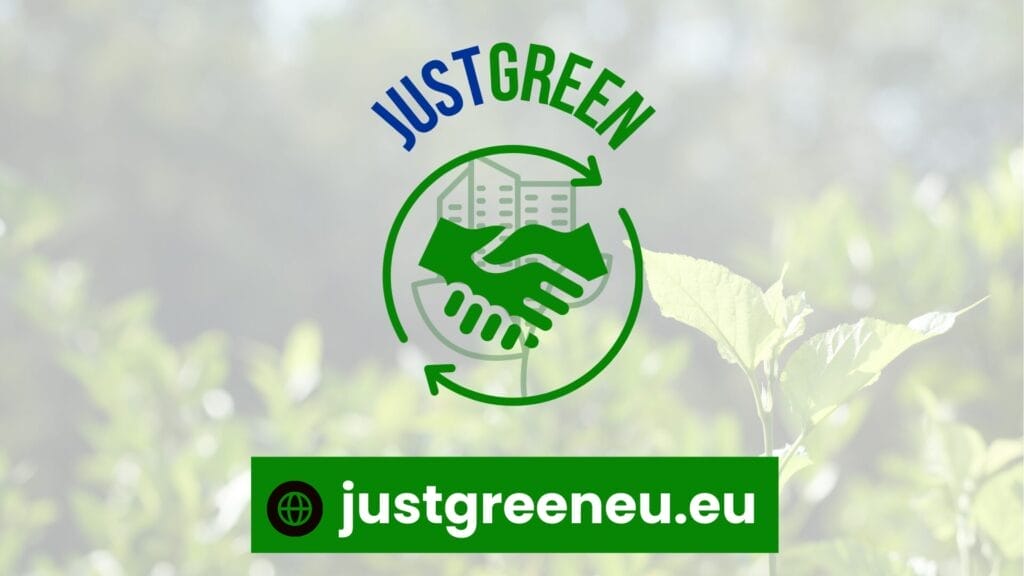
1. June 2026
JustGreen
JustGreen project aims to engage the V4 citizens in debates and other forms of public engagement around decarbonization in three areas that are intimately linked to their everyday lives: housing, transport, and the job market. The public engagement activities, along with the ancillary research, shall pinpoint specific obstacles citizens and communities encounter when implementing climate-friendly steps or adapting to the EU decarbonization policies.

31. December 2025
Assisting independent media and CSOs in enhancing the accessto reliable information on the European Union and EUenlargement on social media in Armenia
The aim of the project is to provide access to reliable information about the European Union and its enlargement process in the Armenian social media environment.
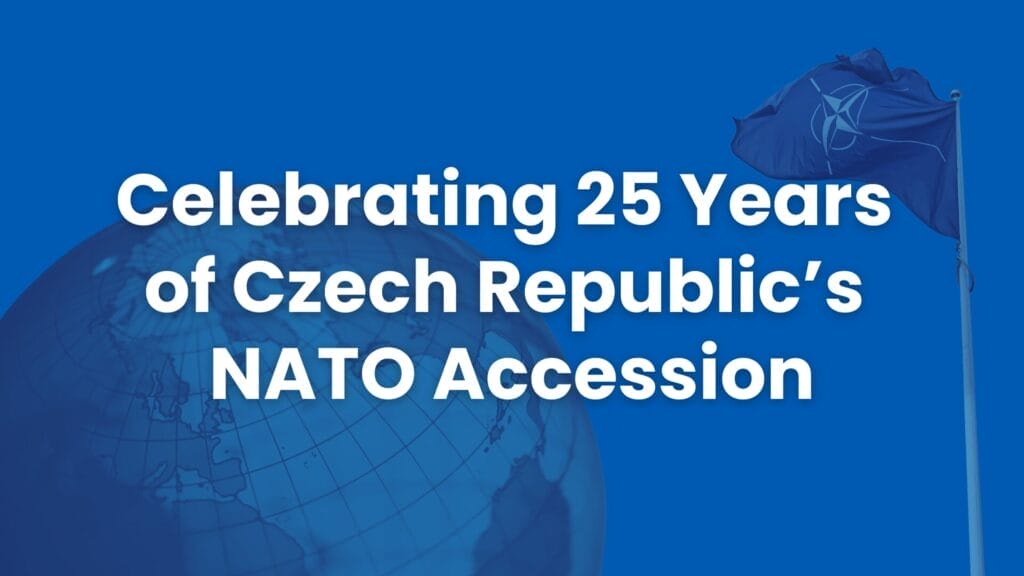
31. December 2025
Celebrating 25 Years of Czech Republic’s NATO Accession
This project aims to commemorate the 25th anniversary of the Czech Republic’s NATO accession, which occurred on March 12, 1999. Anchored in the historic context of NATO’s formation on April 4, 1949, the primary goals of the campaign are to celebrate this significant milestone, effectively communicate the tangible benefits of Czech NATO membership to the public and cultivate a deeper understanding of NATO and U.S.’s pivotal role in safeguarding the nations and Central and Eastern European security. Additionally, the project’s goal is to underscore the strength and benefits of the U.S.-Czech partnership.

2. December 2025
Low-emission materials for the Czech automotive industry
The Low Emission Materials for the Czech Automotive Industry project is the fifth EUROPEUM project aimed at decarbonising the Czech automotive industry. The aim of the project for 2024/2025 is to improve understanding of material flows and regulatory barriers in the automotive sector; to transfer best practices from the international context to the Czech environment; and to identify key areas of Czech and European policies that need to be improved to enable the automotive industry to meet the challenges of decarbonisation and remain competitive.
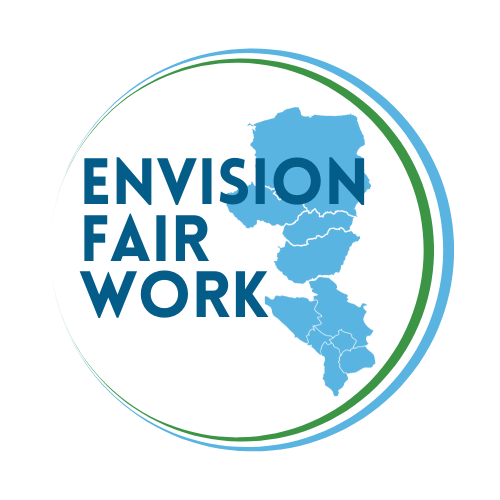
31. October 2025
Platform Revolution: shaping the future of work in the EU and Western Balkans
The Project centres around the fast development of platform work in the Western Balkans and the EU. This new phenomenon has witnessed fast growth since the pandemic, particularly with digital platforms like “Upwork”.
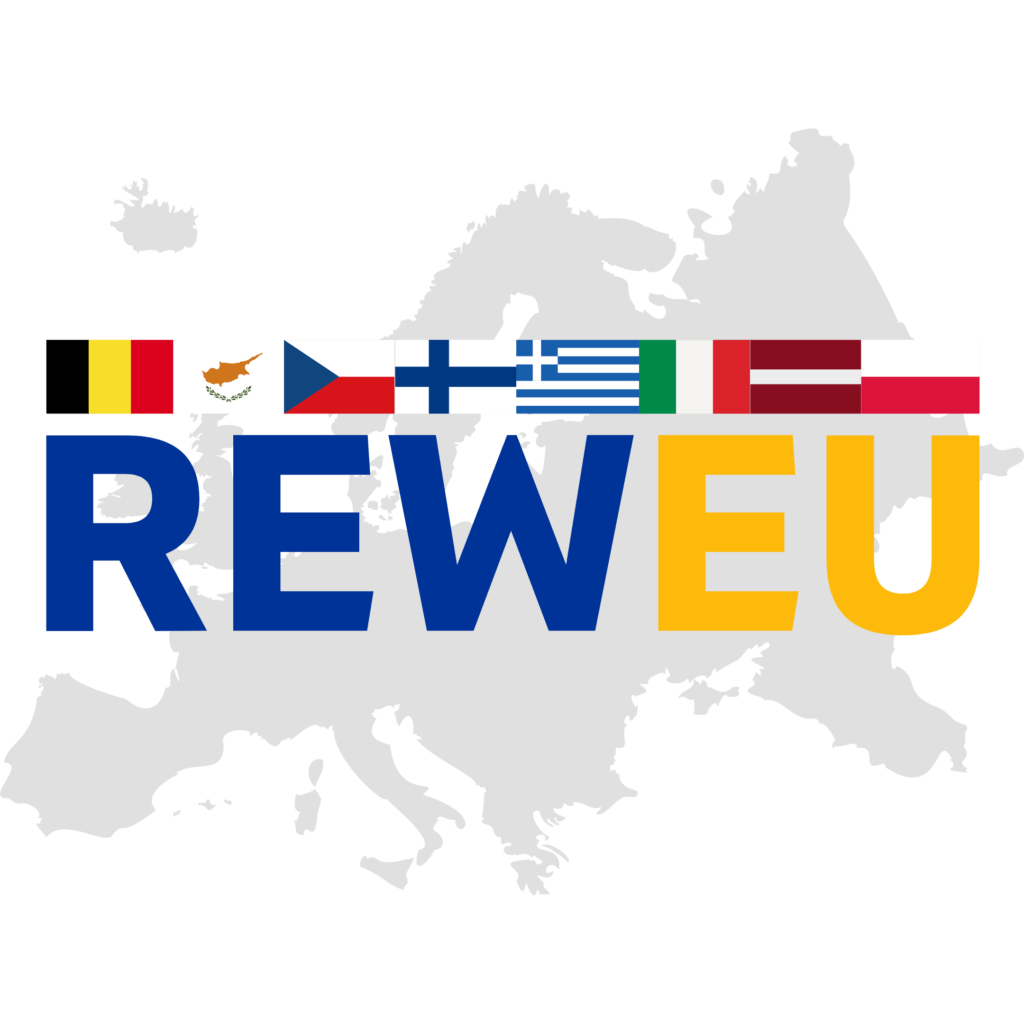
31. October 2025
REWEU
The project (Re)uniting the East and West: Reflections on the 2004 EU enlargement (REWEU) is focused on the commemoration of the 2004 “big bang” EU enlargement at the occasion of its 20th anniversary in May 2024. This event had numerous positive effects on shaping Europe as we know it today, boosting its security, economic potential, and spreading democracy, good governance and European values across the European continent.
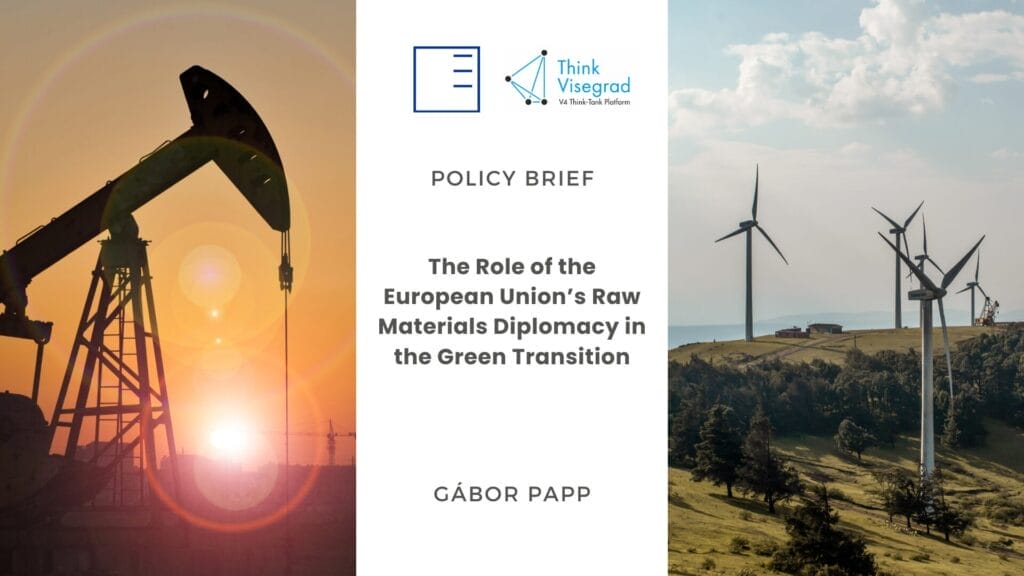
27. March 2025
Policy Brief | The Role of the European Union's Raw Materials Diplomacy in the Green Transition
In 2019, the green agenda became the flagship of the European Commission’s politics in the face of the European Green Deal. Five years later, the re-elected Ursula von der Leyen would like to keep this agenda as the number one priority for the next political cycle, expressing this goal also in her political guidelines. Meanwhile, major geopolitical events during the last couple of years have led to an unprecedented interest in the security of energy and raw material supplies. These topics started to gain significant attention during the Covid-19 pandemic, then surged further in the following energy crises, and finally peaked after the outbreak of the Russia-Ukraine war. Even though the question of energy and supply security has global implications and is being discussed globally, Europe was particularly affected by these aforementioned events, writes Gábor Papp, a Research Fellow at the Hungarian Institute of International Affairs, in his policy brief.
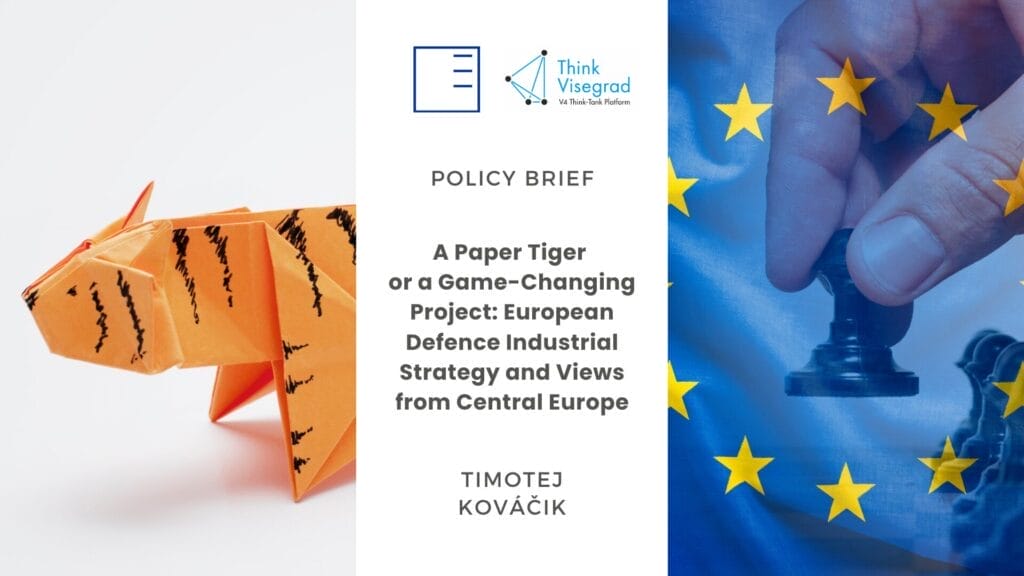
20. March 2025
Policy Brief | A Paper Tiger or a Game-Changing Project: European Defence Industrial Strategy and Views from Central Europe
The first-ever European Defence Industrial Strategy (EDIS) was introduced by the European Commission and the High Representative/Vice-President for Foreign Affairs and Security Policy (HR/VP) in March 2024, addressing key challenges in the European defence industry. The strategy aims to increase European defence industrial readiness, encourage Member States to invest in the European defence industry, and reinforce joint European defence procurement and ownership. EU Member States from Central Europe have played a crucial role in supporting Ukraine after the start of the Russian unprovoked and illegal full-scale invasion in February 2022. They also stressed the need to focus the EU's efforts on new initiatives in the field of defence and the defence industry, such as the Act in Support of Ammunition Production or enhancing the European Defence Fund. Writes Timotej Kováčik, Junior Researcher/Analyst focusing on security and defense issues, the EU's Common Foreign and Security Policy, and energy security at the Slovak Foreign Policy Association.
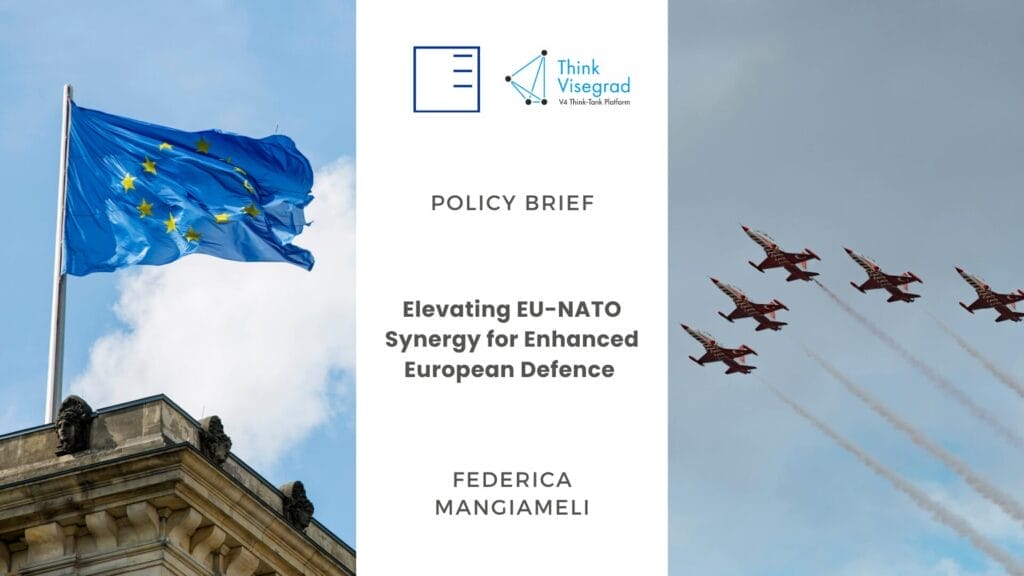
20. March 2025
Policy Brief | Elevating EU-NATO Synergy for Enhanced European Defence
For over two decades, there have been numerous attempts to define and frame the relations between the EU and NATO. Three joint declarations and significant steps ahead have been taken and yet, there is no clear vision of how these two organisations should work together more efficiently. The commonly accepted idea of cooperation sees “NATO pulling the strings and the EU pushing the funds” in accordance with their respective nature and scope. Is this unbalanced relation the most suitable strategy to counter current geopolitical threats? No. But can this cooperation be upgraded? Possibly, yet this appears to be easier said than done. Providing the EU with a coherent defence policy and a strong industrial base can be a great additional value for NATO and not just in the extreme case of a possible disengagement of the US. Writes Federica Mangiameli, Programme Manager and Policy Fellow for Defence and Security at GLOBSEC, in her Policy Paper.
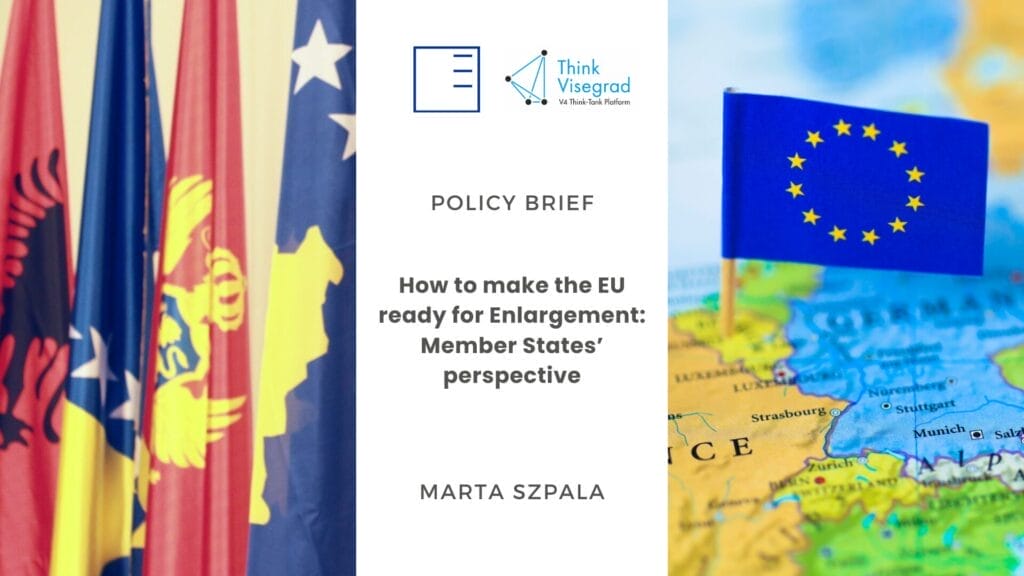
20. March 2025
Policy Brief | How to make the EU ready for Enlargement: Member States’ perspective
Russia’s full-scale aggression against Ukraine in February 2022 has brought EU enlargement back as a priority of the EU policy towards the neighbourhood and as a geopolitical tool to ensure peace, stability and prosperity on the entire continent. That resulted in the EU recognising the aspiration of the Associated Trio countries to join the EU and granting membership candidate status to Ukraine and Moldova in 2022 and to Georgia in 2023. In record time, the former two countries also started the EU accession process in June 2024. The accession process of the candidates from the Western Balkans also accelerated. Bosnia and Hercegovina was granted the candidacy status and accession talks with Albania and North Macedonia started in 2022. However, despite the general consensus that enlargement is a geopolitical necessity, the question posed by French President Emmanuel Macron in Bratislava in 2023 – How should we do it? – still remains unanswered. Writes Marta Szpala, a Senior Fellow in the Central European Department at the Center for Eastern Studies.
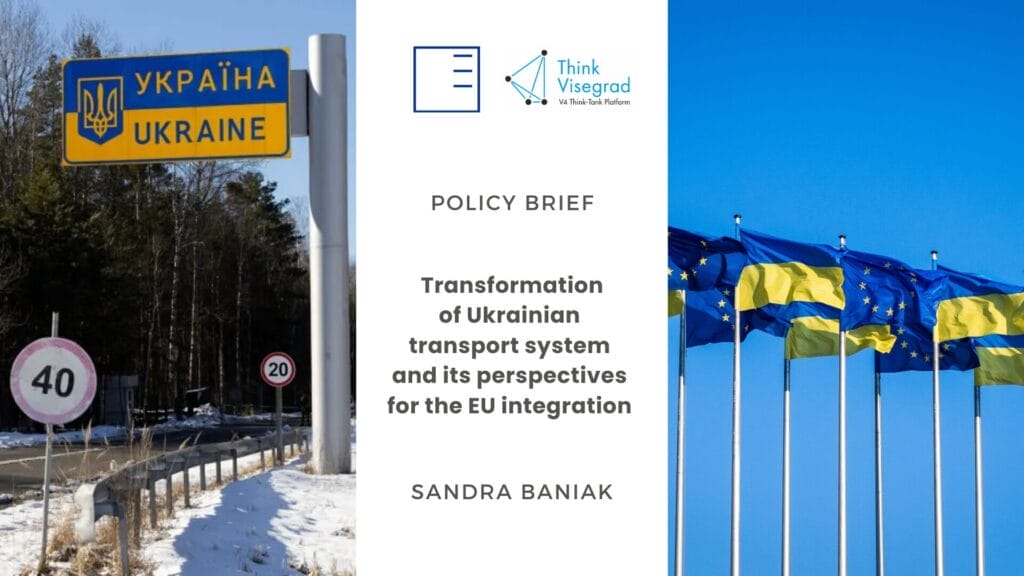
20. March 2025
Policy Brief | Transformation of Ukrainian transport system and its perspectives for the EU integration
Russia's full-scale invasion of Ukraine has led to significant changes in the Ukrainian transport sector due to disruptions in supply chains, cargo flows, and damage of the country’s infrastructure. The Ukrainian transport system has undergone significant transformations. The country's borders with Russia and Belarus and its airspace have been closed. In the first months of the full-scale war, the temporary blockage on the operation of Black Sea ports forced Ukraine to develop land transport corridors to the EU countries and neighboring Moldova to enable both export and import of goods needed for the economy. Despite the ongoing war, Ukraine has accelerated a long-planned reform of the country's transport system to adapt its infrastructure to the EU standards and integrate it with the European transport network. Writes Sandra Baniak, a Research Fellow at the Centre for Eastern Studies in the Connectivity and Regional Integration Programme.
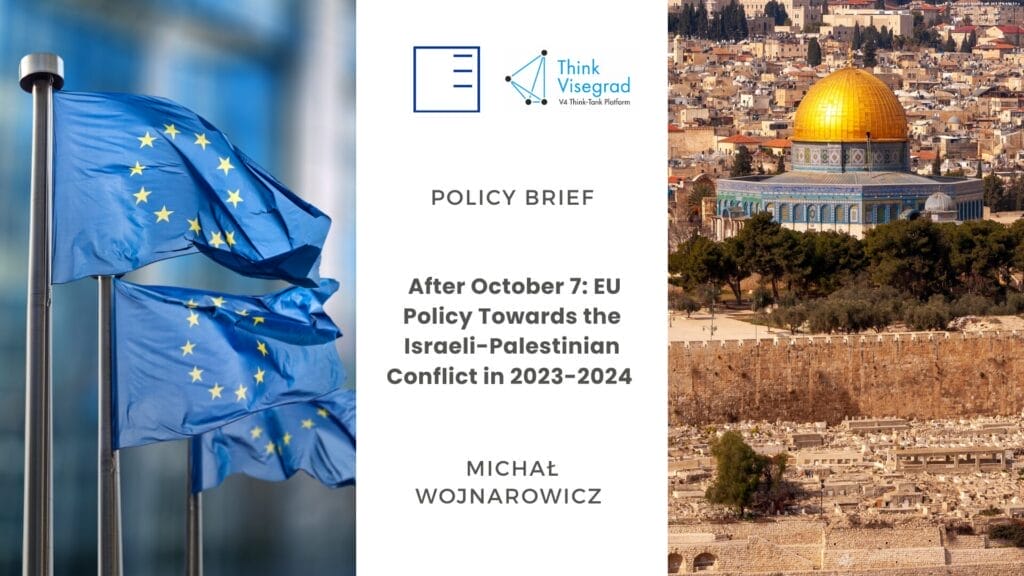
20. March 2025
Policy Brief | After October 7: EU Policy Towards the Israeli-Palestinian Conflict in 2023-2024
The war between Israel and Hezbollah, after a phase of full-scale confrontation, was halted by an armistice concluded at the end of 2024. The situation, however, remains far from stable, and the effects of the crisis are long-term. The surprise caused by the 7 October attack was shared by the European Union. The new iteration of the crisis in the Middle East represented another major political challenge for the European community, overlapping with those related to the Russia-Ukraine war, the migration crisis and other pressing issues requiring Union’s involvement. The EU's policies towards Israel and Palestine came under scrutiny, and the situation once again highlighted the extensive level of divisions among the EU states, affecting the potency and perception of its actions. Writes Michał Wojnarowicz, an Israel and Palestine analyst in the Middle East and Africa program at the Polish Institute of International Affairs, in his policy paper.
Follow us on X
Listen to our Podcast
Contact Us
You can contact us by filling out the form below, by email, by phone or via social media.
EUROPEUM Institute for European Policy
Staroměstské náměstí 4/1,
110 00, Praha 1
110 00, Praha 1
+420 212 246 552
europeum@europeum.org













